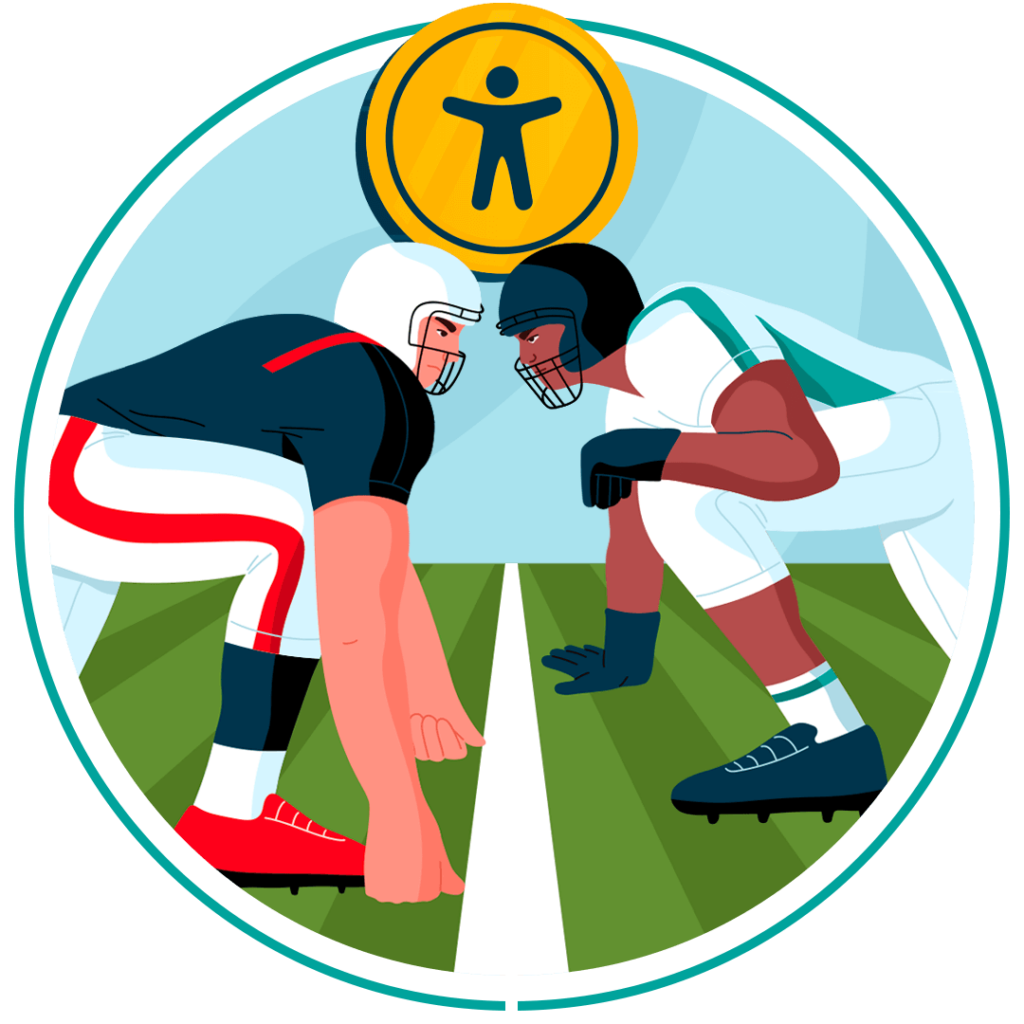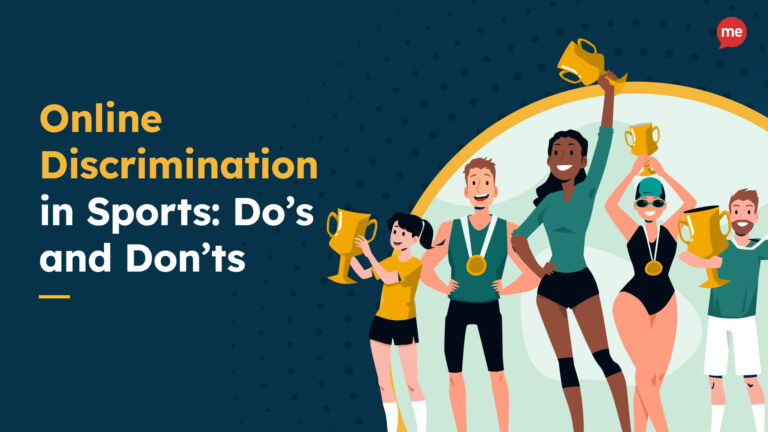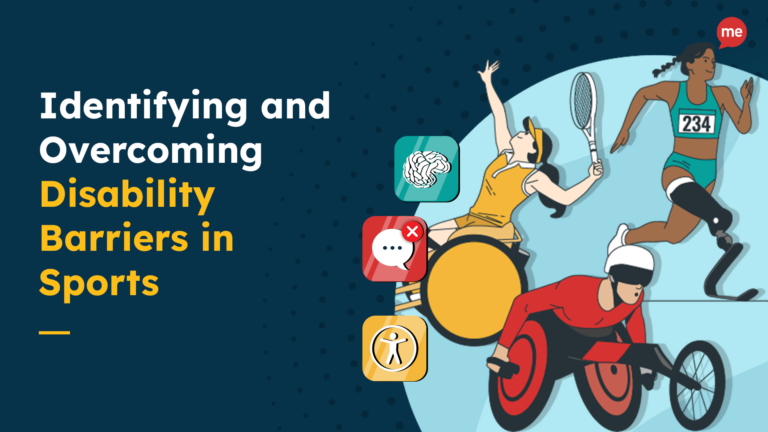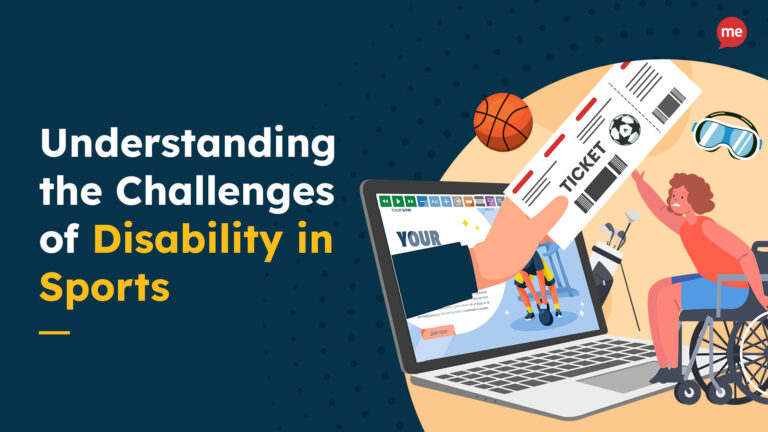If you’ve ever attended a college or university with a sports team, then you have felt the palpable electricity in the air on game day. From painted faces and spirited chants to the shared anticipation that hangs in the air, college athletics are a cornerstone of the American student experience.
But what happens when some fans are left on the sidelines – not because of a bad play, but because of inaccessible websites?
Here’s the truth: websites with accessibility barriers can exclude a significant portion of the population, including those with disabilities, from fully engaging with their favorite teams. This hinders fan experience and misses out on the potential of ticket sales.
Why is Online Inclusion in College Sports Important?
According to the National Collegiate Athletics Association (NCAA), over 41,867 fans attended a college football game in 2023, showing the highest attendance figure in college football games since 2017, and 23.6 million viewers watched the College Football Playoffs in 2024. This doesn’t include other popular sports like basketball, baseball, soccer, and hockey.
In today’s digital age, much of the action happens online. Purchasing tickets, game highlights, interviews with players and coaches, and even live streams of games are all readily available on athletic department websites and mobile applications. However, if these digital spaces aren’t accessible to people with disabilities, it creates a digital divide that excludes them from the full fan experience.
An inclusive website can benefit teams looking to expand their fan base and revenue, have a strong brand image, and stay compliant with the law.
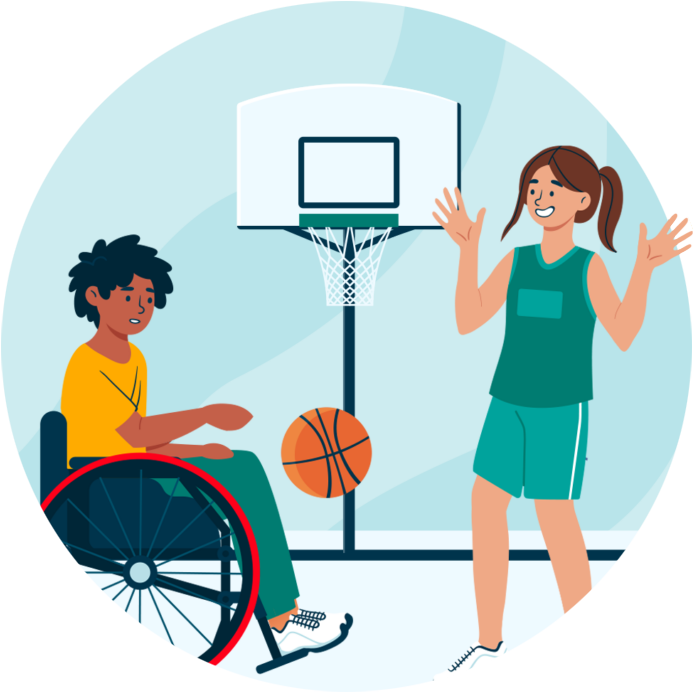
Expanded Fan Base and Revenue
College athletics thrive on passionate fan bases. But what if a significant portion of potential fans are excluded from the action? This is precisely the issue with inaccessible websites. Here’s how prioritizing online inclusion leads to a wider fan base and increased revenue for college sports teams:
Tapping into a Wider Audience – According to the CDC, one in four adults in the US has a disability. By creating inclusive websites, college sports teams open the door to this vast and loyal audience. These fans can now fully engage with the team, access game schedules, rosters, and news, purchase tickets and merchandise, and participate in online communities. This translates to significant potential for increased revenue.
Reaching Younger Generations – Younger demographics are tech-savvy and expect accessibility features as standard. An inaccessible website can alienate this growing and influential fan base. By prioritizing accessibility, teams can cater to the expectations of younger generations, fostering long-term fan engagement and loyalty.
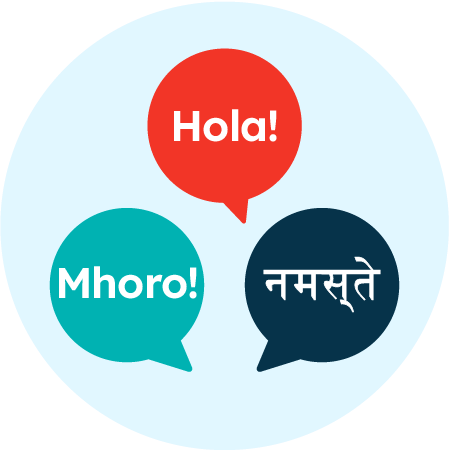
- International Audience and Increased Reach – Accessible websites with multilingual options can attract international fans. Imagine a passionate football fan in Argentina discovering your team’s website seamlessly translated into Spanish. This expands the team’s reach and opens doors to new revenue streams, such as international merchandise sales or streaming subscriptions.
- Improved User Experience Leads to Increased Sales – Accessibility features benefit all users, not just those with disabilities. A user-friendly website with clear navigation, simple design, and multiple content formats (e.g., text transcripts for videos) keeps visitors engaged and encourages them to explore different sections of the website. This can lead to increased ticket sales, merchandise purchases, and overall fan engagement with premium content or sponsorships.
Strong Brand Image
In today’s world, consumers increasingly support brands that align with their values. College sports teams are no exception. Here’s how prioritizing online inclusion strengthens a team’s brand image and resonates with a wider audience:
Fan Appreciation and Loyalty – Fans appreciate organizations that value inclusivity. When a team demonstrates a commitment to accessibility, it shows they care about the experience of all fans, regardless of ability. This fosters a sense of loyalty and appreciation, leading to increased fan engagement and positive word-of-mouth promotion.
Aligning with Student Values – Today’s students are more vocal than ever about diversity and inclusion. An accessible website showcases the team’s commitment to these values, making it more appealing to potential students who prioritize inclusivity. This can play a role in their decision-making process when choosing a university.
- Attracting Alumni Support – Alumni are passionate about their alma mater and want to see it succeed. When a team prioritizes online inclusion, it reflects positively on the university as a whole. This resonates with alumni who value diversity and may be more likely to donate or volunteer their time and expertise.
Government Regulations Around Diversity and Inclusion in College Sports
In May 2023, the Justice Department and the Department of Education issued a ‘Dear Colleague Letter’ jointly reminding colleges, universities, and other postsecondary institutions to ensure their online services, programs, and activities are accessible to people with disabilities.
This letter emphasized the importance of compliance with Title II of the ADA and Section 504 of the Rehabilitation Act, stressing equal opportunities for individuals with disabilities in all college and university activities, such as sports.
The number of lawsuits filed against organizations for website accessibility issues has been steadily rising in recent years. These lawsuits highlight the growing importance of website accessibility for public entities. By creating an inclusive website, college sports teams can avoid the legal risks and potential financial liabilities associated with ADA non-compliance.

Stay ahead of the game when it comes to Digital Accessibility laws and compliance in the United States. Learn about all the different federal and state-level regulations, see real examples of web accessibility lawsuits in different regions and discover a 7-step action plan for building accessible websites.
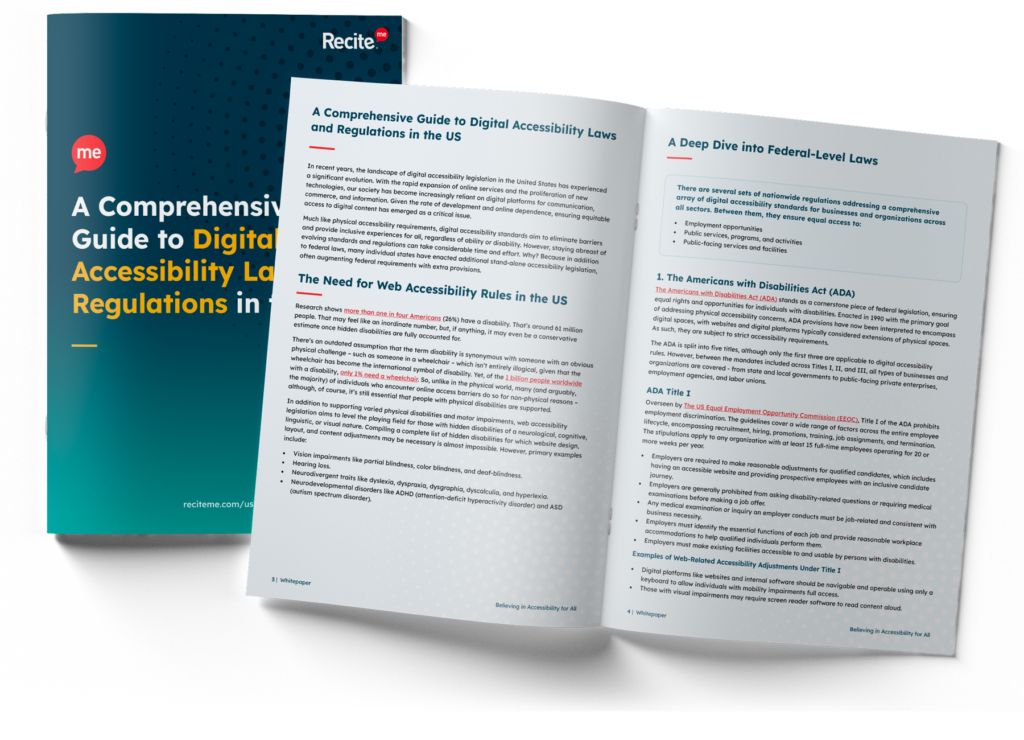
How Can Recite Me Help Create More Inclusive College Sporting Experiences?
Recite Me’s innovative suite of accessibility on-demand tools makes websites accessible and inclusive for a diverse range of people.
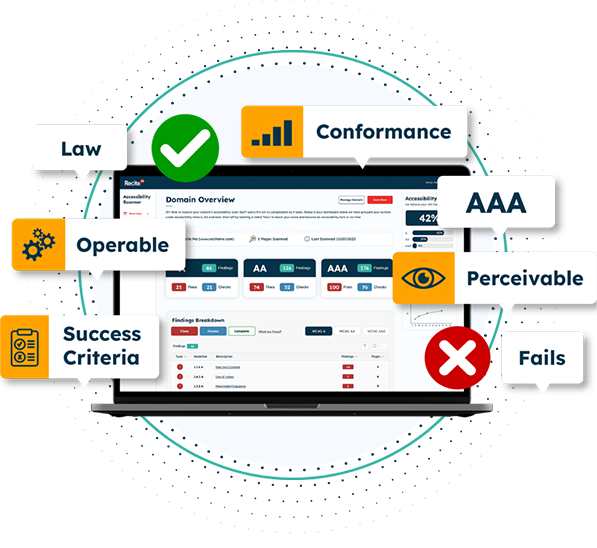
WCAG-Compliance Made Easy
The Recite Me Accessibility Checker audits back-end and front-end web development processes by running 396 separate compliance scans in line with WCAG 2.1 and breaks down the issues you should be working to fix. The methodology follows a simple four-step process to help you increase your accessibility score:
- Step 1: Scan Your Domains – Choose between scanning single or multiple pages.
- Step 2: Identify Accessibility Issues – Identify the locations of accessibility issues on your website.
- Step 3: Fix Accessibility Errors – Boost your accessibility score by prioritizing fixes in line with WCAG Levels A, AA, and AAA.
- Step 4: Track Your Progress – Create and share custom reports with your team and roadmap the next WCAG issues in your fix queue.
Schedule a free demonstration or run a free scan of your website today!
Accounting for Individual Differences
Unfortunately, your website doesn’t become instantly inclusive just because you made it accessible. What makes a website truly inclusive is providing options so individual users can make customizations to view web pages in the best way for them.
The Recite Me Toolbar is a proven way of supporting people online. Once installed, website visitors can create fully customizable online experiences by:
- Personalizing font size, type, and color options.
- Choosing the exact color contrast between the text and background.
- Utilizing the mask screen tool to help with focus.
- Using the ruler tool to make reading easier.
- Downloading content as an audio file as an alternative to reading.
- Converting page content into over 100 on-screen languages.
- Having the page read aloud in a choice of 65 languages.
- Customizing PDF documents or having them read aloud/ translated.
- Zooming in on any part of a webpage.
- Using the built-in spell-checker and a fully integrated dictionary and thesaurus.
Schedule a free demonstration, or take our toolbar for a test drive right now!
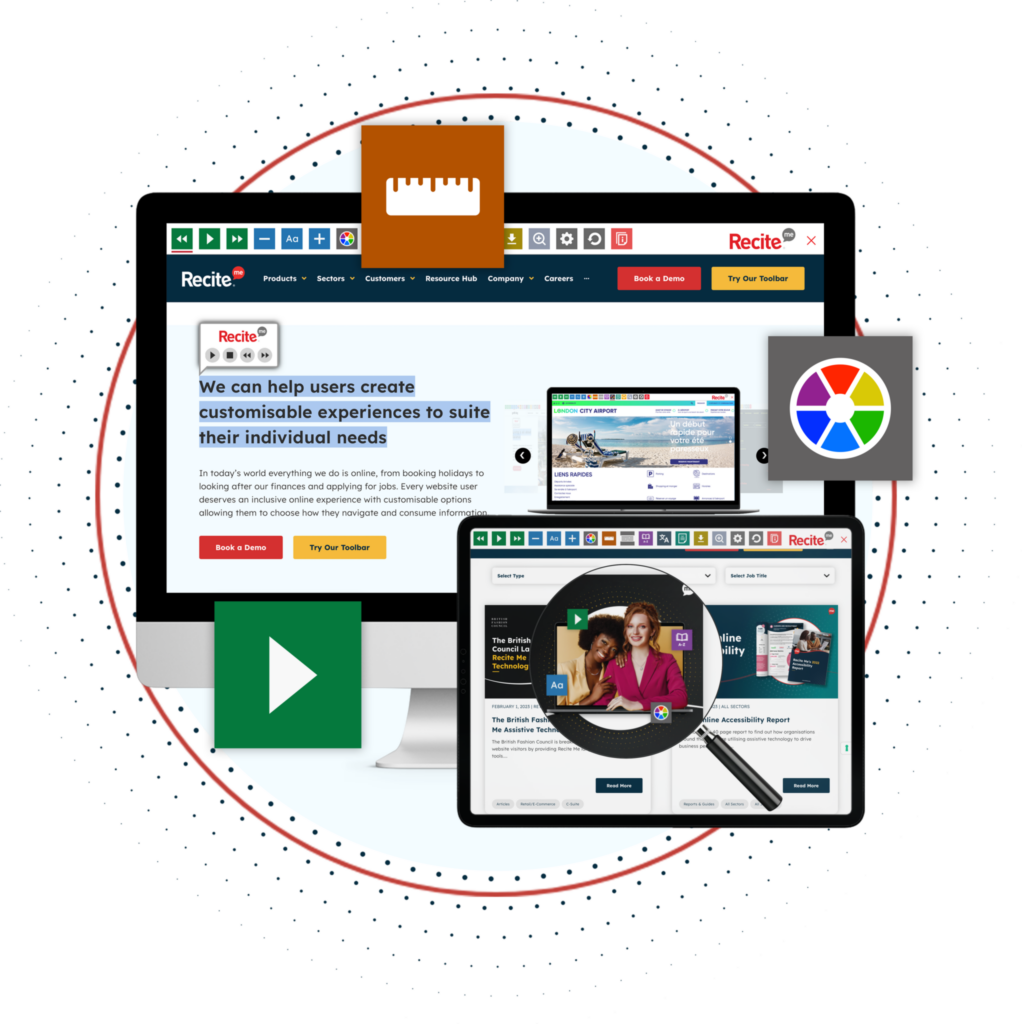
Sports Organizations using Recite Me
Here are a few of our best case studies from the leading sports organizations we’re proud to be partnered with:
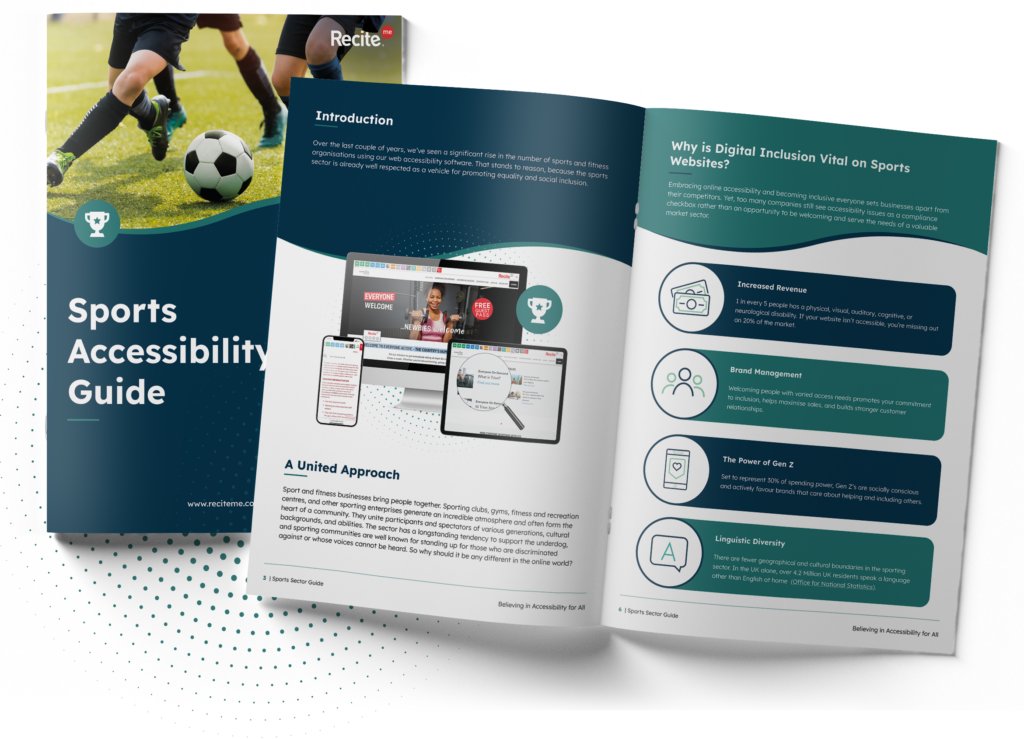
Download our Sports Accessibility Guide
Read more on why website accessibility is important to sports businesses, who need support online, the type of access barriers users face, and our top tips for an inclusive sporting website.
